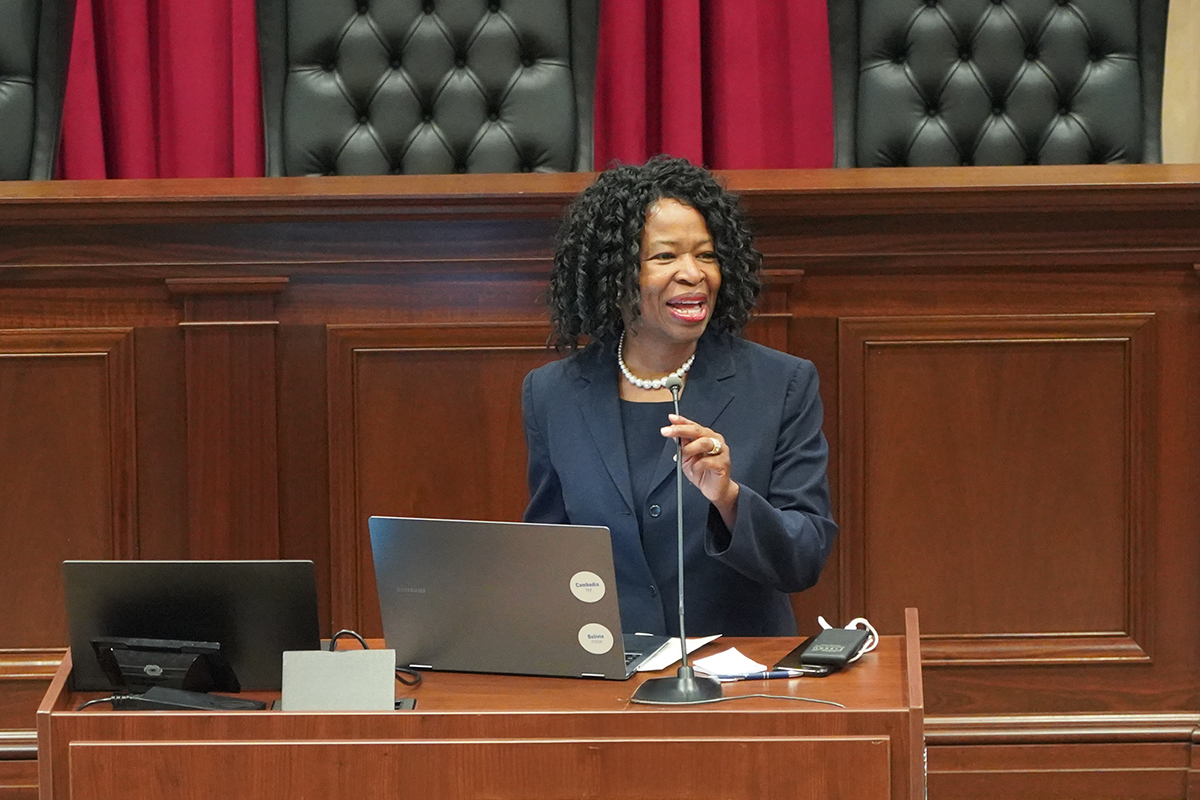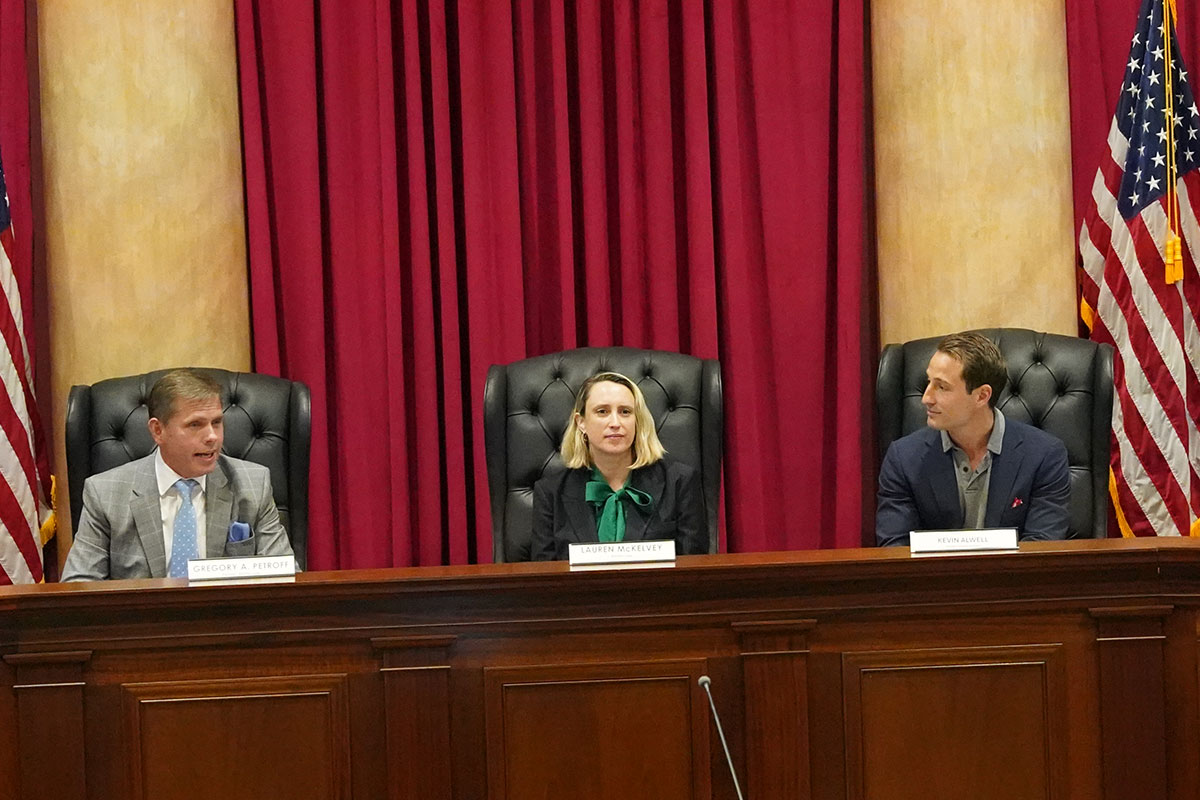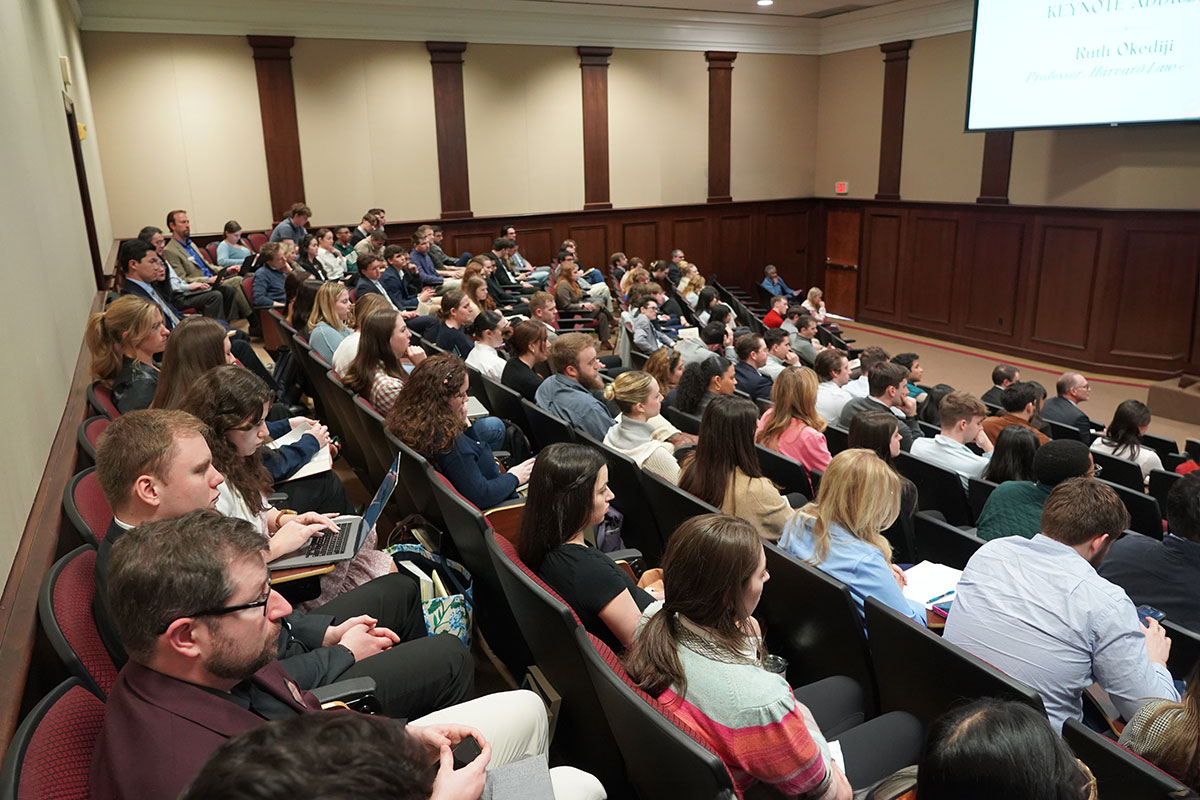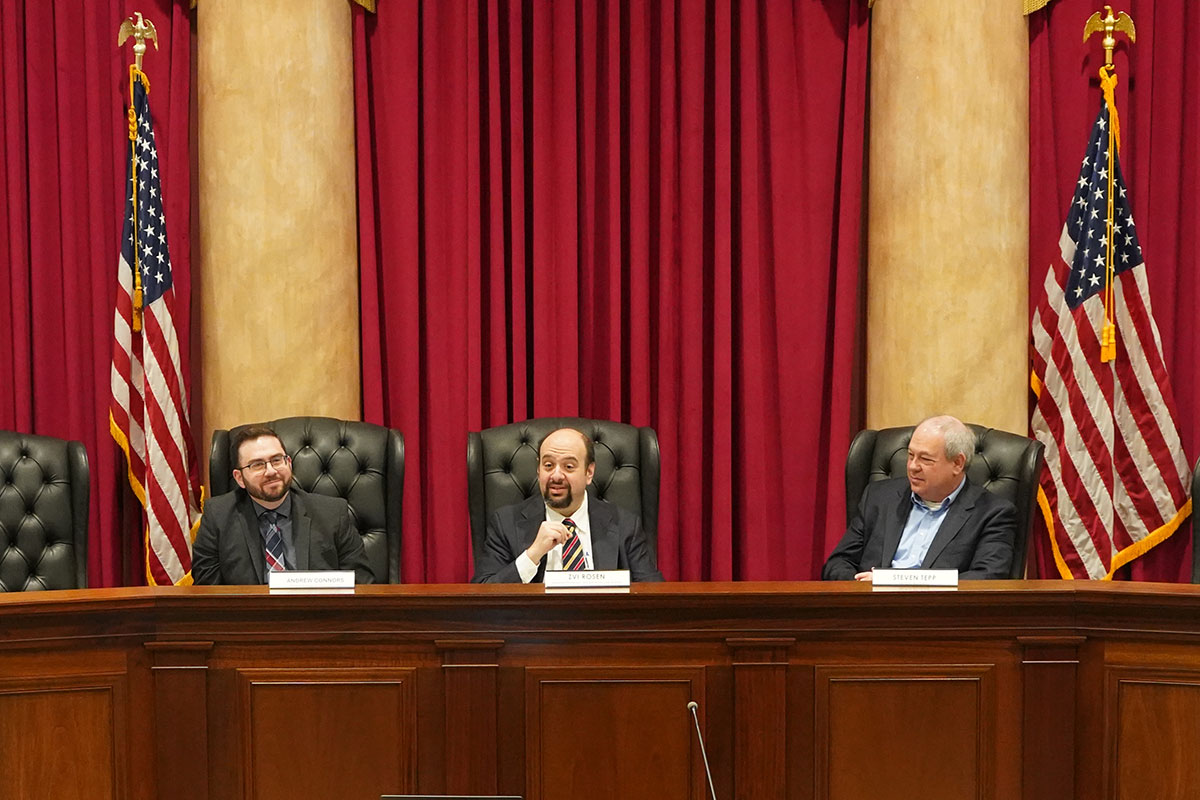Search News Archives
Filter News Articles
Additional Navigation
Liberty Law Review symposium addresses impacts of AI on legal field
March 5, 2025 : By Abigail Degnan - Office of Communications & Public Engagement

The Liberty University Law Review hosted its annual Law Review Symposium, titled “Artificial Intelligence, Authentic Conversations,” at the School of Law Supreme Courtroom on Saturday. With various guest speakers from universities and organizations around the country, the symposium focused on the trending legal issues involving artificial intelligence and the Christian perspective on AI use.
The Law Review is a student-led scholarly legal journal edited and published by Liberty Law, featuring internal and external authors. It has been cited by federal judges, state Supreme Court justices, state Court of Appeals judges, and in briefs before the United States Supreme Court. Each year, the Law Review staff chooses a topic to explore in depth and holds a symposium featuring scholars and professionals who specialize in the topic.

The symposium opened with a panel on “Origins & Obligations: AI in Corporate Transactions,” in which Reitler Kailas & Rosenblatt LLP partners Gregory Petroff and Lauren McKelvey and a leading AI research organization Strategic Solutions Architect Kevin Alwell discussed the implications of AI issues in corporate law. Topics discussed included whether AI would impact students receiving law firm associate jobs after graduation due to the streamlining of legal processes, and Petroff assured students that associate positions will still be necessary. The panel also discussed legal risk factors and issues to be mindful of, such as the possibility of discrimination arising in algorithms, and the need for companies to regularly monitor and adjust models accordingly to account for bias.
The second panel of the morning, “AI-Generated Content: Innovation or Infringement?” focused on AI and intellectual property, and the panelists discussed how AI may clash with copyright laws. George Washington University Law School Professorial Lecturer in Law Steven Tepp and Southern Illinois University School of Law Professor Zvi Rosen served on the panel. Liberty Law Professor Andrew Connors was the moderator.
Ruth Okediji, the Jeremiah Smith Jr., professor of law at Harvard Law School and co-director of the Berkman Klein Center, followed the second panel as the event’s keynote speaker. Okediji is a scholar in international intellectual property (IP) law and an authority on the role of intellectual property in social and economic development. She has advised inter-governmental organizations, regional economic communities, and national governments on a range of matters related to technology, innovation policy, and development. She is the author of “Copyright Law in an Age of Limitations and Exceptions.”
Okediji said the symposium was the first faith-focused AI conference she has attended.
“That is really a testament to this institution,” she said. “It is a testament to the power of the leaders and scholars that you are training here, and it is a testament to the intuition and the discernment that this is a huge issue for our society. It’s a huge issue for the global environment and, as I say to my students, there is no question on the face of the earth that people of faith, Christians in particular, should not be ahead of.”
 Okediji spoke about the many breakthroughs in AI research, including the machine Eliza, a computer system that could scan sentences for keywords and reply with a pre-written conversation.
Okediji spoke about the many breakthroughs in AI research, including the machine Eliza, a computer system that could scan sentences for keywords and reply with a pre-written conversation.
“These models are being trained to speak to a gap that we have always felt as humanity, and that is the sense that we can be better,” she said. “Everything about AI is about (asking), ‘How can we improve the world in which we live, how can we improve our processes?’ But fundamentally, what it is asking is, ‘Can these systems do better than God-created man?’”
Okediji encouraged the attendees to question AI and use caution in how they use it.
“The real tension in our conversations about AI is not really about algorithms. The real tension lies in what we choose to design our algorithms for,” she said. “What’s the data we select? What are the biases we acknowledge? I say this here at Liberty Law School because I think it’s fundamentally important that this not be just a one-day symposium. The work of thinking theologically about technology must be done and it must be done with vigor, with people who are equally excellent in their faith and equally excellent in their study of law.”
“We have the opportunity to benefit from artificial intelligence when we understand both our creation in God’s image and our brokenness,” she added. “Liberty Law School, Liberty Law Review, our job in this age of artificial intelligence is to put a biblical label on everything.”

A lunch followed Okediji’s keynote address, then the symposium continued with four afternoon sessions: “Is AI a Horse or a Zebra? AI Free Speech Concerns;” “Algorithms & Expression: The Future of Free Speech;” “The Measure of a Man: Science Fiction, Christianity, & AI Regulation;” and “God, Man, & AI: The Christian Response to AI Concerns.”
“The Law Review Symposium is one of the few opportunities that we have to connect with legal professionals and members of the community outside of our four walls,” said Vittoria D’Addesi, symposium editor for the Law Review and a 3L student. “After a year of planning, with a ton of support from the entire Law Review and the Liberty Law faculty and staff, and with an excellent program of law and policy experts, we achieved our goal through our symposium. There is no topic more timely than artificial intelligence, and it is essential that Christian attorneys are on the forefront of solving emerging legal issues and developing policies in response to the impact of artificial intelligence.”


